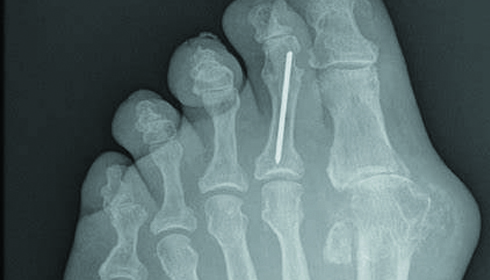
Gut signals may revolutionize rheumatoid arthritis prevention: Study
According to recent research from the University of Leeds, alterations in the gut microbiome, or the community of bacteria that live in our intestines, may warn the development of rheumatoid arthritis (RA) months before symptoms develop. This discovery could open up a key window for preventive treatment, giving hope to patients who are at risk of acquiring this severe, chronic disease.
Rheumatoid arthritis, which affects more than 500,000 people in the UK, is a condition in which the immune system mistakenly assaults the body's own tissues, mainly the joints. This produces oedema, stiffness, and pain, which can have a considerable impact on daily activities. RA currently lacks a cure, with treatments primarily focusing on symptom management instead of disease prevention.
According to the World Health Organization (WHO), millions of people worldwide suffer from rheumatoid arthritis (RA), which has an estimated global prevalence of 0.5% to 1.5%. The Centers for Disease Control and Prevention (CDC) report that women are 2–3 times more likely than men to acquire RA. According to The Lancet, the disease most typically affects persons aged 40 to 60, resulting in an estimated 4.5 million disability-adjusted life years (DALYs) worldwide.
The Indian Rheumatology Association estimates that the prevalence of RA in India is around 0.75 percent. This rate varies by region, with 0.93% in urban regions and 0.55% in rural areas (Journal of the Association of Physicians of India, 2019). Similar to the global trend, Indian women are 2.5 times more likely than males to have RA (Indian Journal of Rheumatology, 2018), and the peak onset age in India is slightly earlier, between 35 and 55 years.
Prevalence rates vary by region in India: 0.83% in North India, 0.67% in South India, 0.58% in East India, and 0.73% in West India (Journal of the Association of Physicians of India, 2019). Furthermore, studies show that 70% of RA patients in India have moderate to severe symptoms, and 60% have major limits in their everyday activities due to the condition (Indian Journal of Rheumatology, 2018).
The financial implications of RA are equally significant. RA has a major economic impact on individuals and the healthcare system in India, with direct and indirect expenses of around ₹14,439 crores (nearly $2 billion USD) every year (Indian Journal of Rheumatology, 2018).
The Annals of the Rheumatic Diseases published the study, which followed 19 people at risk of RA for 15 months, collecting stool samples to evaluate alterations in gut flora. Five of the patients developed clinical arthritis, and their gut microbiomes contained more inflammatory bacteria, such as Prevotella, approximately 10 months before the start of symptoms. In contrast, those who did not get RA had consistent gut bacteria counts throughout the trial.
Dr. Christopher Rooney, the main researcher at the University of Leeds, emphasizes the significance of this finding. "Patients at risk for rheumatoid arthritis frequently suffer early symptoms such as fatigue and joint discomfort. "This study gives us hope that intervening at the right time will prevent the disease entirely," he said.
The researchers intend to use the ten-month window to explore preventive medicines. The researchers suggest dietary adjustments like increasing fibre consumption, supplementing with prebiotics and probiotics (substances that encourage healthy bacteria in the gut), and practicing excellent dental hygiene as ways to minimise the entrance of dangerous bacteria to the gut.
The relationship between gut health and RA, while not fully understood, suggests that changes in gut flora may contribute to the body's immune response in ways that eventually lead to arthritis. Interestingly, in some patients, these gut changes were visible prior to any physical symptoms in the joints, implying that monitoring gut health could provide an early warning system for RA.
Lucy Donaldson, head of research at Versus Arthritis, a UK charity that is funding the trial, expressed optimism: "This research provides a potential breakthrough in our ability to delay or prevent RA, allowing people to live fuller lives without the limitations of chronic pain and stiffness."
Although the study discovered inflammatory microorganisms related to RA, the researchers highlighted that it is not communicable. Instead, these bacteria appear to generate conditions in the stomach that may activate or accelerate immune responses, eventually leading to joint inflammation.
The National Institute for Health Research, Versus Arthritis, and other local partners, notably Leeds Teaching Hospitals NHS Trust, helped make this study possible. Patients also helped researchers develop a simple sampling method, making it easier for participants to deliver the necessary stool samples.
The initial data for the study came from a larger pool of 124 people who had a high level of an antibody termed CCP+, which is known to target healthy cells and serves as a risk factor for RA. The researchers compared samples from at-risk individuals to those from healthy people and newly diagnosed RA patients. The researchers discovered that the gut microbiomes of the at-risk group were less diverse than those of the healthy ones.
Based on these findings, the Leeds team plans to investigate medicines that have undergone testing for similar purposes. This will assist them in determining the best preventative measures to test in future research, perhaps offering at-risk individuals a means to delay or even eliminate the onset of RA entirely.